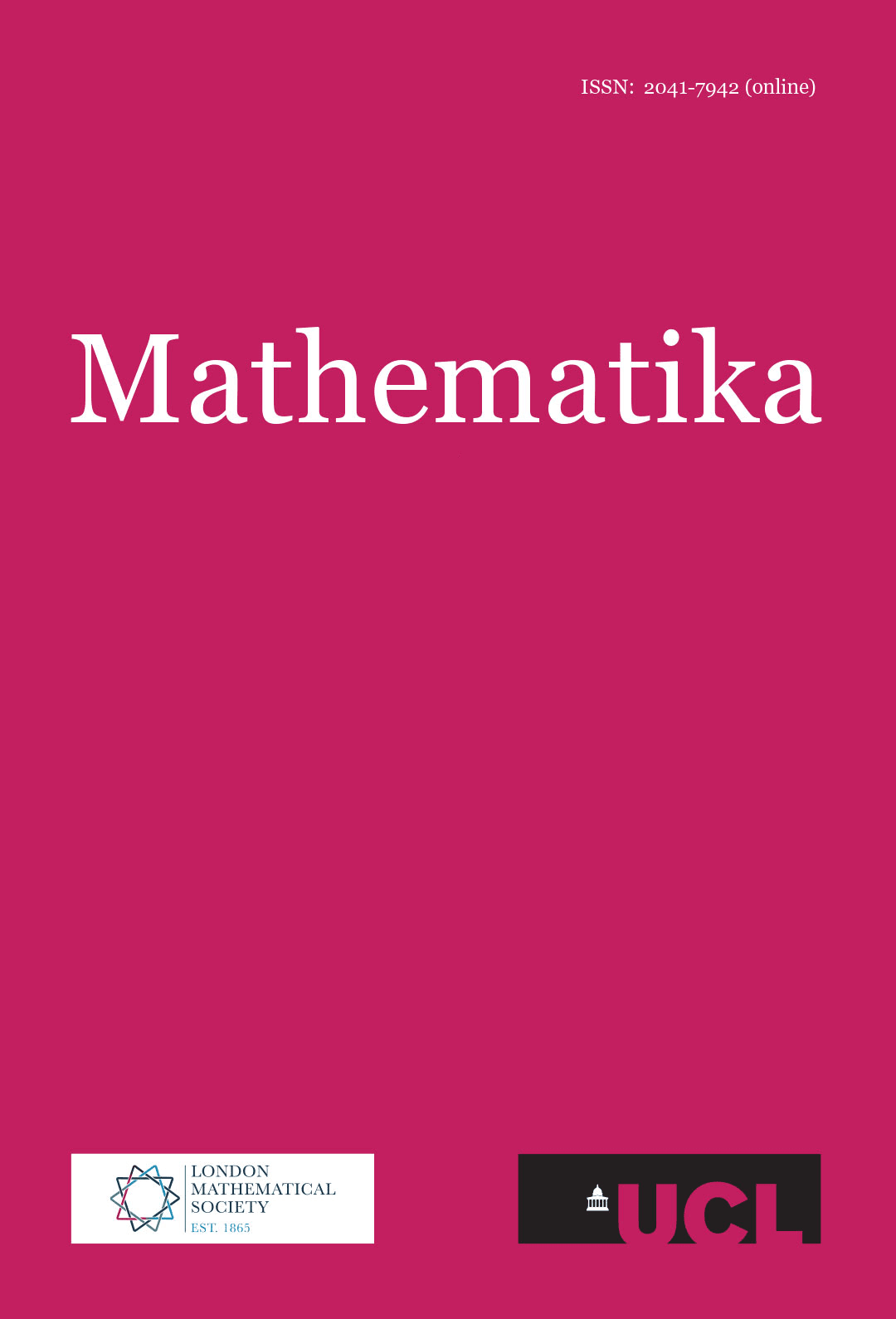About
Mathematika publishes high-quality articles in pure and applied mathematics and has done so continuously since its founding by Harold Davenport in the 1950s.
It has a comprehensive scope with traditional strengths in combinatorics, geometry, analysis and number theory.
Not-for-profit publishing
Mathematika is owned by University College London and published by the London Mathematical Society.
100% of the funds generated by the publication of Mathematika are reinvested in mathematics, supporting mathematicians and mathematics research in the form of research grants, conference grants, prizes, initiatives for early career researchers, and the promotion of mathematics.
Publishing your research in Mathematika directly supports the charitable work of the London Mathematical Society.
Mathematika is proud to fund the Mathematika Prize for Excellent PhD Thesis, awarded annually to two students from the Mathematics Department of University College London.
Submitting to Mathematika
Before submitting an article to Mathematika, we recommend that authors read the submission guidelines for Mathematika.
All articles published in this journal are peer reviewed. Editors may reject papers without external review. Read our full peer review policy.
If a paper is accepted for publication in Mathematika, it will be sent to the publisher for typesetting. Find out more about what happens to an article after it is accepted.
Open Access
Mathematika is a hybrid open access journal. By default, articles in the journal will be published on a subscription basis and only be accessible to journal subscribers. The journal has options for gold and green open access publication.
Before submitting to Mathematika, authors should check any open access requirements from their institution or funder.
If you are required to publish on an open access basis but you cannot identify a compliant route with Mathematika, please contact the journal team before submitting.
See our open access page for more information.
Subscribe
Contact the publisher to subscribe to this journal or renew your current subscription.
Contact
Submissions
For any queries about submitting to the journal, articles under review, the peer review process or the submission system, contact the LMS team: mathematika@lms.ac.uk
Accepted articles
For accepted articles which have not been passed to the publisher for production, contact the LMS team: production@lms.ac.uk
For accepted articles which have been passed to Wiley for production, contact the Wiley team: mtk@wiley.com
Rights and permissions
Find information on the Wiley website.
All other enquiries
Contact the LMS team: mathematika@lms.ac.uk



